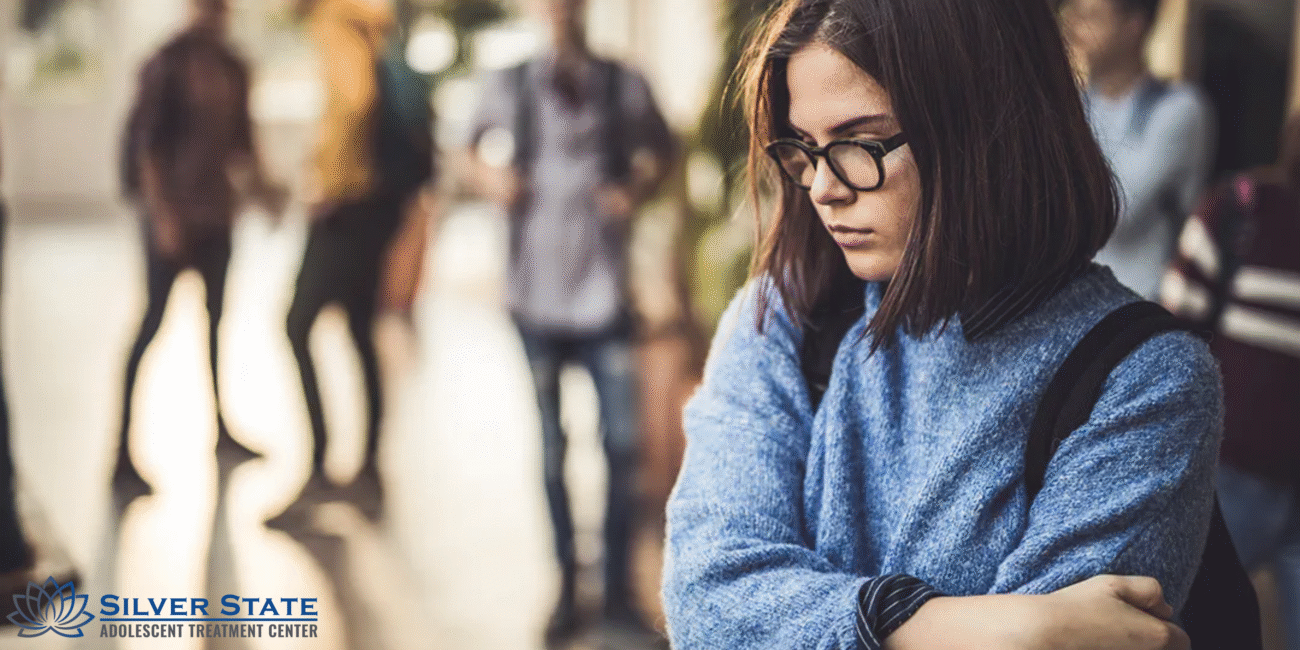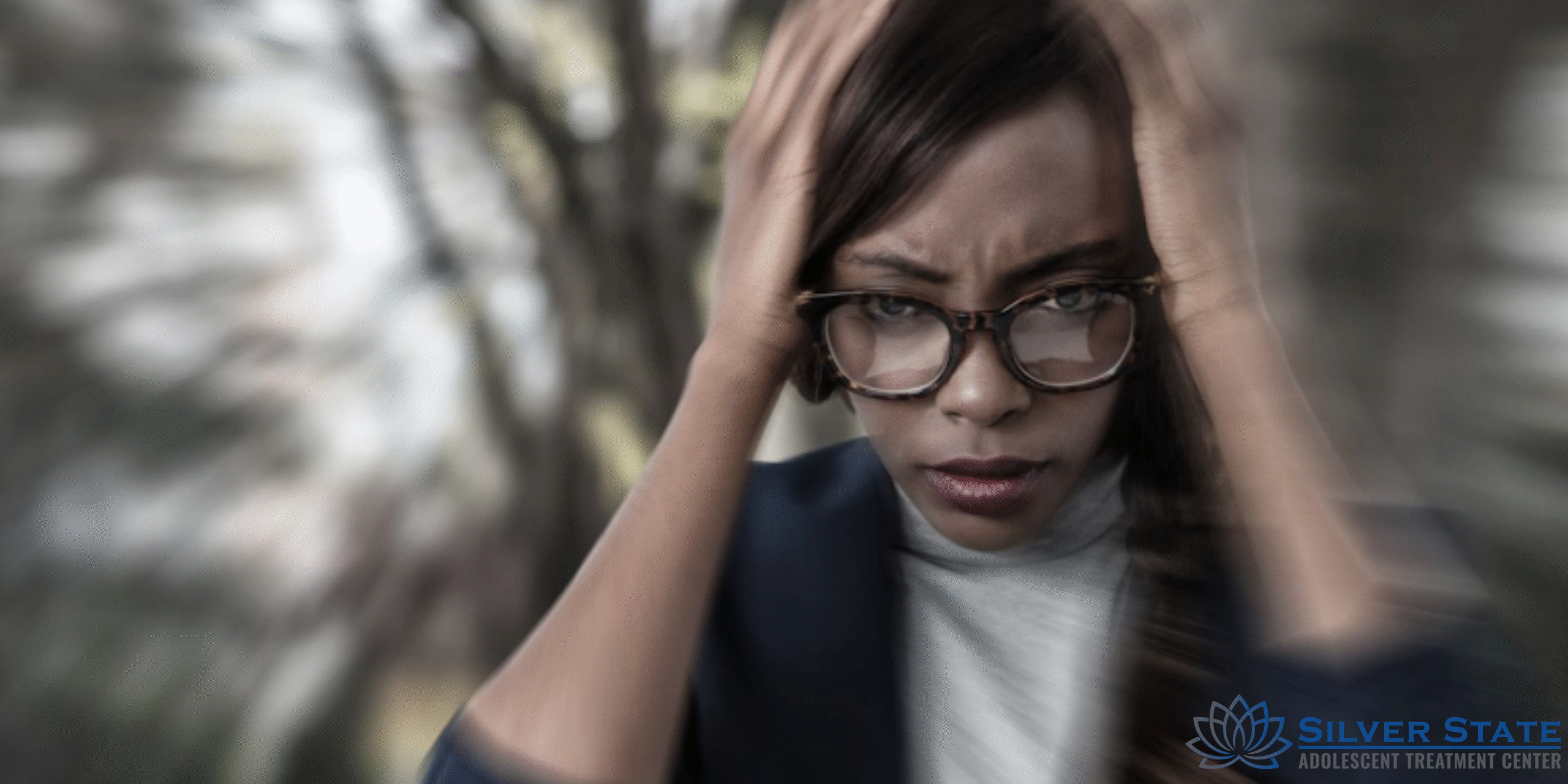Mental Health Help for Teens Facing Synthetic Cannabinoid Abuse in School

Table of Contents
Key Takeaways:
- Synthetic cannabinoids, like Spice and K2, can cause severe and unpredictable mental and physical health problems, such as psychosis, seizures, and addiction.
- Teenagers who use these drugs are more likely to experience anxiety, depression, cognitive impairment, and other disorders at the same time.
- Teen Dual Diagnosis care and Teen Holistic Treatment are two examples of evidence-based treatment approaches for teens that can help with both drug use and mental health problems.
- Early help, like school-based support and local services like the Las Vegas Teen Center, is significant for both recovery and prevention.
- It is essential to spread the word about The Dark Truth About Drug Tolerance and Dependence to fight the idea that synthetic cannabinoids are safe alternatives.
Introduction
When faced with the shocking rise of synthetic cannabinoid abuse in schools, mental health help for teens is significant. These strong and often misleadingly branded drugs (like Spice or K2) are not natural or safe; they can be awful for teens’ mental health in ways that are hard to predict.
Schools often struggle to identify and address these hidden threats, and teens may not realize how they can impact others. The risks are many, from hallucinations and anxiety to addiction and emergency help. This blog’s goal is to look at how comprehensive mental health help for teens can respond to this crisis, highlight the importance of local treatment options like Las Vegas Teen Center services, and stress the need for recovery plans that address both substance abuse and underlying mental health issues. As schools attempt to navigate these challenges, new concerns have emerged, such as the normalization of stimulant use in debate clubs, which can exacerbate mental health issues among students. Addressing these behaviors within the community is crucial to fostering a supportive environment where teens can thrive without turning to substances. By integrating educational programs and resources, we can equip young people with the tools they need to make healthier choices and seek help when necessary.

What Makes Synthetic Cannabinoid Abuse Particularly Dangerous For Adolescents?
Synthetic cannabinoidsattach to brain receptors more strongly than natural THC, which can have powerful and unpredictable effects, especially in teens whose brains are still growing. Compared to teens who haven’t used these drugs, teens who have are much more likely to have depression, anxiety, conduct disorders, and hallucinations, as per the >National Institute on Drug Abuse People who go to the emergency room for synthetic cannabinoid-related episodes may have agitation, tachycardia, nausea, seizures, and psychosis, and they could die, as per SAMHSA
How Can “Las Vegas Teen Center Services” Help Teens Addicted To Synthetic Cannabinoids?
Las Vegas Teen Center servicesusually offer a range of services for teens, including mental health counseling, family support, and integrated addiction care. Therapeutic interventions like cognitive-behavioral therapy (CBT), psychiatric support, and activities that address mental, social, and physical health can be part of these programs. These kinds of services greatly lower the risk of relapse and promote long-term healing by providing structured care that deals with both substance use and emotional issues that happen at the same time.
Why Is It Essential For Teens Who Use Synthetic Cannabinoids To Get A Dual Diagnosis?
A lot of teens who abuse synthetic cannabinoids also have mental health problems like depression, anxiety, ADHD, or trauma-related disorders. If you treat the addiction without also treating these other conditions, you may not fully recover.
A Teen Dual Diagnosis framework deals with both substance use and mental health at the same time by coordinating therapy, medication management, and family involvement. This method is crucial for achieving long-term success.

What Role Does A Holistic Treatment Plan Play In Healing?
Holistic treatment doesn’t just try to stop drug use; it also helps the teen’s mind, body, and spirit. Teen Holistic Treatment might include activities such as art or music therapy, mindfulness, nutrition, exercise, and coaching on how to live life. These strategies work together to help teens become more resilient, learn how to deal with problems in a healthy way, and feel empowered, which are all important for teens who are trying to rebuild their lives after being dependent.
How Does Understanding The Dark Truth About Drug Tolerance And Dependence Help Teens Avoid Relapse?
Teens might think that synthetic cannabinoids are “safe” because they are often sold as legal or natural. But if you use it a lot, your body gets used to it and needs more of it to feel the effects, which makes it more likely that you will overdose or have mental health problems. Teens and families can avoid going down that path if they understand the dark truth about drug tolerance and dependence and how dangerous it is to use more and more. Learning about this subject should be a key part of planning for prevention and treatment.
Conclusion
Getting teens who are abusing synthetic cannabinoids the mental health help for teens they need is both urgent and complex. Teenagers are especially at risk for the unpredictable and dangerous effects of these drugs, which can include addiction, cognitive impairment, psychosis, and other mental disorders that happen at the same time. Early intervention, professional help, and comprehensive, trauma-informed approaches like those offered by Las Vegas Teen Center services are all critical for good care. Families and providers can find a way from crisis to healing by using strategies like Teen Dual Diagnosis care, Teen Holistic Treatment, and learning about The Dark Truth About Drug Tolerance and Dependence. Teenagers need more than just getting better; they also need to grow, become stronger, and have a future beyond addiction. Call Silver State Adolescent at 725.525.9897 today for caring, professional help in Las Vegas.
How Can Teens in Las Vegas Address Mental Health Issues Related to Synthetic Cannabinoid Abuse and Benzodiazepine Reactions?
Teens in Las Vegas facing challenges from synthetic cannabinoid abuse should prioritize open discussions about their mental health. Engaging with professionals can provide vital insights. Additionally, understanding benzodiazepine effects on youth mental health is crucial, as both substances can exacerbate anxiety and depression, fostering a healthier community for recovery.
FAQs:
1. What Are The Most Common Signs That A Teenager Is Using Synthetic Cannabinoids?
Common signs are sudden anger, hallucinations, confusion, mood swings, a fast heart rate, nausea, poor grades, and unexplained absences. Seizures or loss of consciousness can be signs of an emergency.
2. Why Is Using Synthetic Cannabinoids More Dangerous Than Using Regular Marijuana?
Synthetic cannabinoids are much stronger, bind more tightly to brain receptors, and often come with chemical mixes that are hard to predict. This makes them more likely to cause psychosis, seizures, organ damage, and even death.
3. Will Treating Mental Health Problems Along With Addiction Really Make Things Better?
Yes, studies of treatments for teens with both addiction and mental health issues show that treating both at the same time improves recovery rates, lowers the risk of relapse, and helps overall health.
4. How Do Holistic Treatments Help Teens Who Are Trying To Get Better?
Holistic care helps teens build healthy outlets and life skills, like through art, mindfulness, nutrition, and exercise. This helps them become more emotionally strong, boost their self-esteem, and make lasting changes in how they act.
5. Can Tolerance And Dependence Go Away?
Many teens can get over their tolerance and dependence with the help of professionals and time, but it’s important to be aware of the problem and act quickly. It is important to teach people how tolerance and dependence grow so that things don’t get worse.
Citations:
- Office of Addiction Services and Supports. “Young People & Synthetic Cannabinoids.” New York State OASAS,https://oasas.ny.gov/synthetic-cannabinoids.
- SAMHSA. “Drug-Related Emergency Department Visits Involving Synthetic …” Substance Abuse and Mental Health Services Administration, https://www.samhsa.gov/data/sites/default/files/SR-1378/SR-1378.htm
- National Institute on Drug Abuse. Association of cannabis, cannabidiol, and synthetic cannabinoid use … NCBI PMChttps://pmc.ncbi.nlm.nih.gov/articles/PMC11102655/

